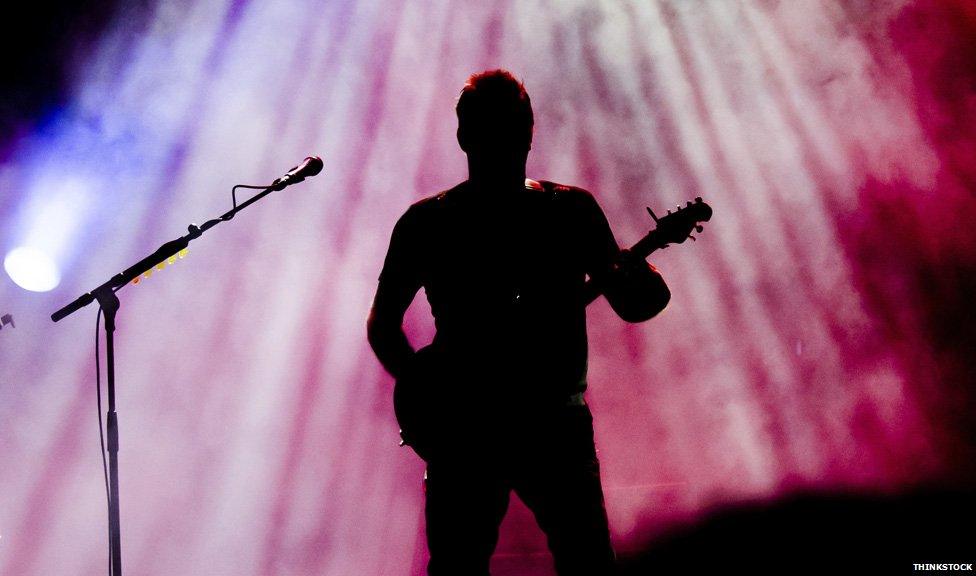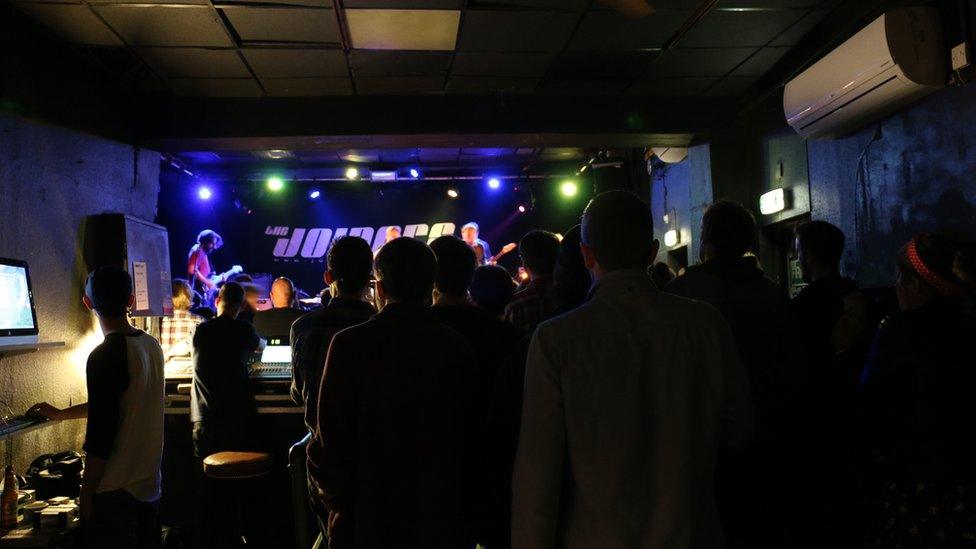Why the UK's small music venues are under threat
- Published

It is estimated 40% of music venues in London have closed over the past 10 years - reflecting a similar pattern in the rest of the UK.
In response, London Mayor Boris Johnson has set up a taskforce to look at how smaller venues can be protected.
Their findings, due out in October, are being put together in partnership with a charity called the Music Venue Trust.
The numbers aren't exact because there isn't an exact definition of a small live music venue.
Places like the Sheffield Boardwalk, the Princess Charlotte in Leicester and the Cockpit in Leeds have all shut their doors in recent years.
Others like 100 Club on Oxford Street, the Tunbridge Wells Forum, Exeter's Cavern and The Joiners in Southampton are said to be threatened.
Yannis from Foals explains why small venues are important
Newsbeat went to Southampton to meet Ricky Bates, the booker and promoter at The Joiners.
Coldplay, Radiohead, The Vaccines and Catfish and the Bottlemen are just some of the big names who have played this 200-capacity venue.
But Ricky says they face a multitude of problems to keep it open.
"Fewer people coming to shows and the financial side of keeping a venue running is a real pain," he explains.

Ricky Bates is the promoter at The Joiners in Southampton
They pay £4,000 a month in rent and rates, before paying a single band.
Ricky puts on around 320 shows a year and tickets are, on average, £7 on the door. He says they can't charge any more because it will put people off coming.
"The biggest threat we have is keeping our finances coming in and keeping the property developers off our back," he adds.
New buildings being built around venues is a common problem, while offices being turned into flats means noise can then become an issue.
Wolf Alice explain why small venues are important to them.
So why are small venues important?
Well, they are where many of your favourite bands get their first real experience of playing live.
But they are also crucial to all the other people who work in live music, from lighting to sound, to people like Ricky who put the gigs on.
Foals started out playing house parties before moving onto small venues. Frontman Yannis Philippakis says they are vital to the UK music scene.
"I think it is important that there are those venues and that people do support them and we support them we can where we can," he says.
"I also think it is important for people to go and check out what local talent there is in their towns.
"And local promoters need to book local bands and foster where there are underground scenes.
"This will make sure the UK music scene is alive and well and it is not all about festivals and it is not all about big venues. What is important is what is down at the grassroots level."
Mark Davyd from the Music Venue Trust says it is important to remember how much money British music makes for the economy.
"The British music industry is worth £3.8bn. All that money starts from when somebody takes their first step onto a grassroots venue stage."
He is positive the decline can be turned around.
"We've come up with some very practical solutions that don't really cost that much," he says.
"In October, certainly for London and a report for Edinburgh as well, we are going to be announcing some steps that can be done," he explains.
"I think at that point there is a real opportunity for the music industry and the government to really respond to that and really get behind grassroots music venues."

Follow @BBCNewsbeat, external on Twitter, BBCNewsbeat, external on Instagram, Radio1Newsbeat, external on YouTube and you can now follow BBC_Newsbeat on Snapchat